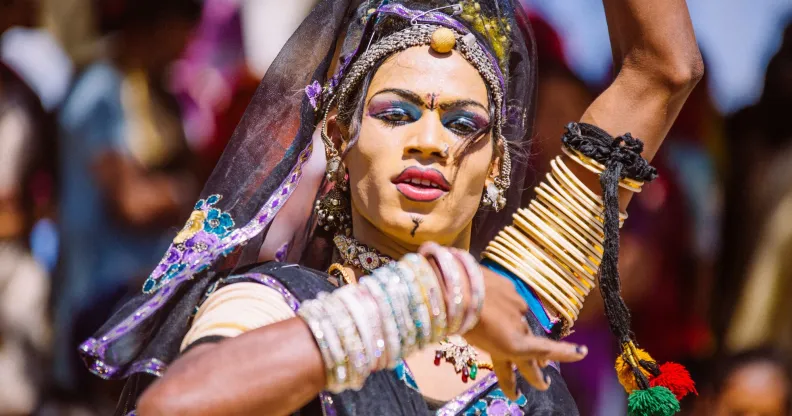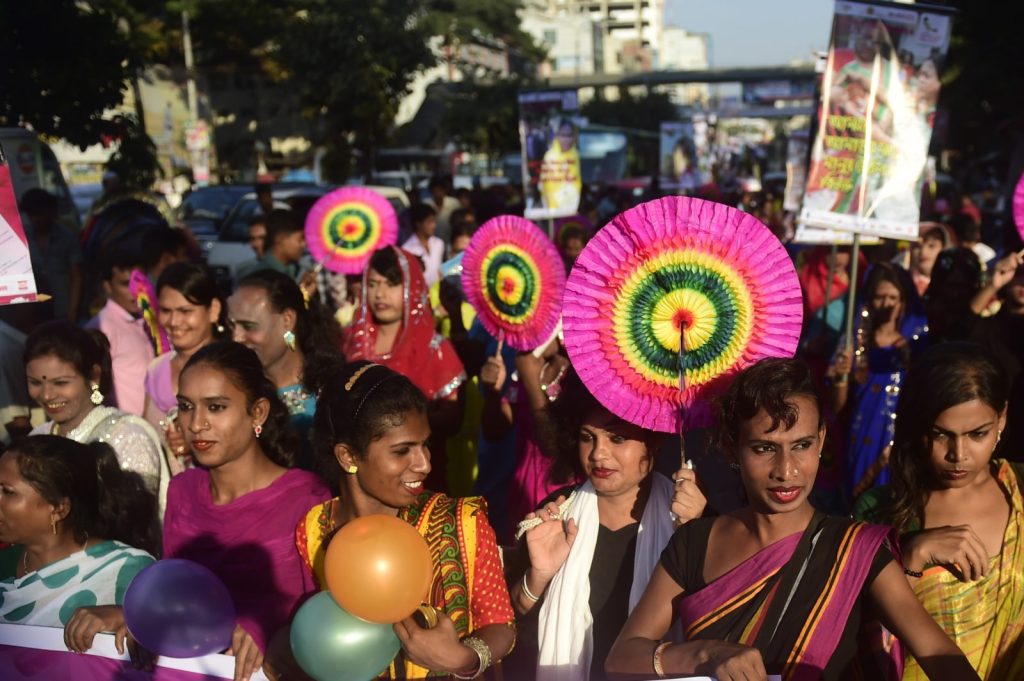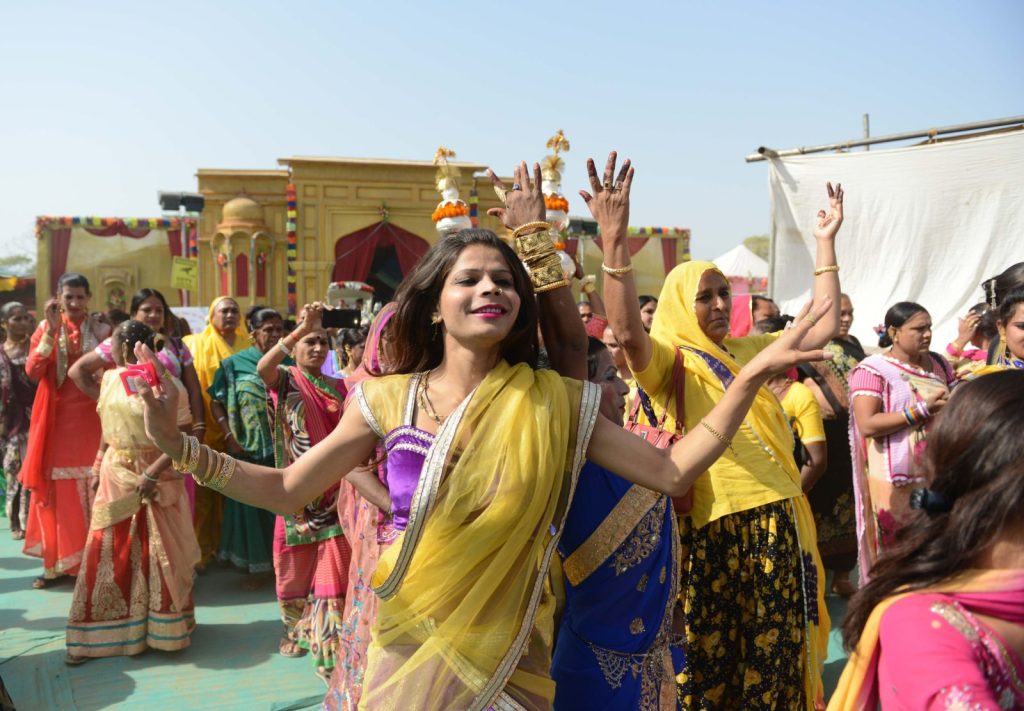Dev Patel’s Monkey Man shines a light on India’s hijra communities

Hijras are a third gender in India, who have existed for 2000 years (Getty)
Dev Patel’s latest film, Monkey Man, has been praised for including India’s “third gender”, the hijra. But who exactly are hjiras? Here’s what you need to know about them.
The Indian subcontinent has been home to “hijras” for over 2,000 years: communities of gender non-conforming people and trans women. They’re even mentioned in the ancient text the Kama Sutra, where they’re referred to as the third sex.
Typically, hijras are born with male genitalia or are intersex – born with both male and female sex characteristics – and may decide to remove their genitalia later in life. The surgery is part of a ceremony celebrating Bahuchara Mata, a Hindu mother goddess associated with people who challenge traditional gender roles.
Hijras may identify as trans women, but being a hijra is a unique and distinct cultural identity in itself. It is estimated that there are between two and three million hijiras living in India alone.

Young people who wish to join the hijra community are initiated by a guru or teacher who teaches them about the hijra way of life and the complex combination of rituals hijras perform throughout their lives.
Hijras play an important tole at weddings and other ceremonies to celebrate female sexuality, and are believed to have a beneficial impact on the bride’s fertility. However, they also face violence and discrimination for challenging traditional gender roles. Hijras are often victims of assault and sexual violence and are denied access to healthcare, housing, and employment.

This discrimination dates back to British colonialism, with the British colonial authorities criminalising hijras and stripping them of legal protection.
In 2014, hijras were recognised by the Supreme Court of India as a minority community and given the right to employment, welfare, and health services.
Despite that legal recognition, hijras are still relatively underrepresented in India – and across the world.
Monkey Man‘s hijra inclusion

That’s why Dev Patel’s latest film is extremely important. Monkey Man, released last week in the UK and US, is considered an “anthem for the underdogs, the voiceless, and the marginalised”.
The film follows Kid, who joins a group of trans and gender non-conforming characters to fight the elite oppressing them, with Patel saying that “they wage this war for the good and the just”.
“I really wanted to include the hijra community, the third gender in India. We should be fighting for [one another], not against [one another]. For me, it has become rigid over time.
“When you look at the old carvings in these temples in India, the freedom, the sexuality, all of it, the philosophy was so ahead of its time, I wanted to dive into it and make that the lore of the film,” Patel said.

